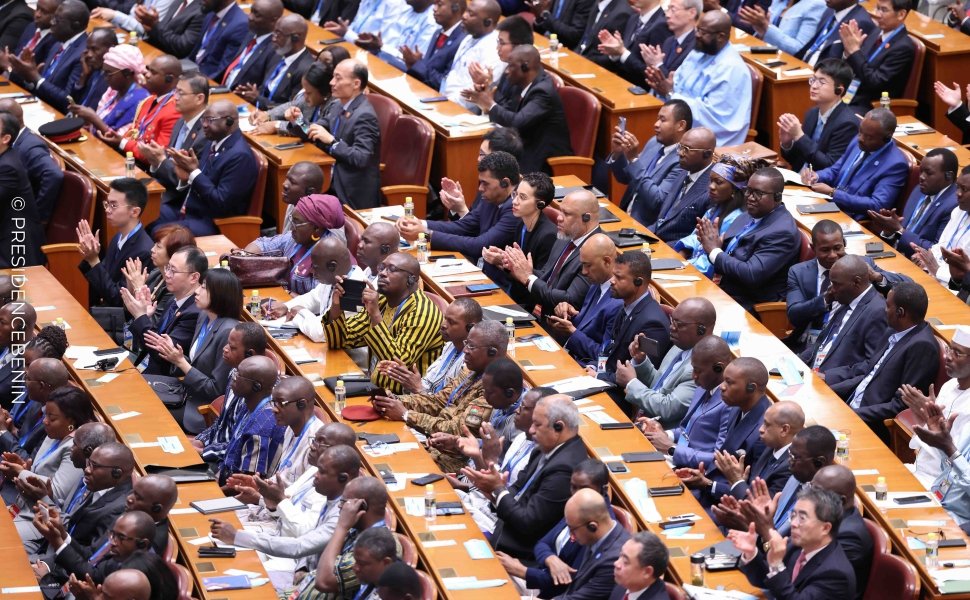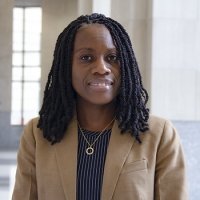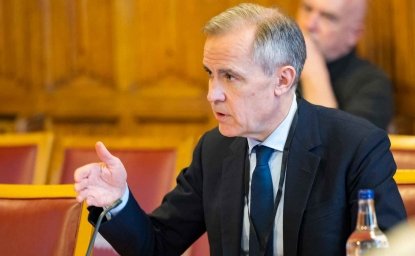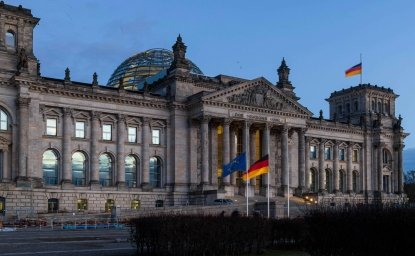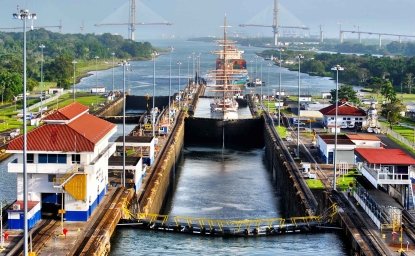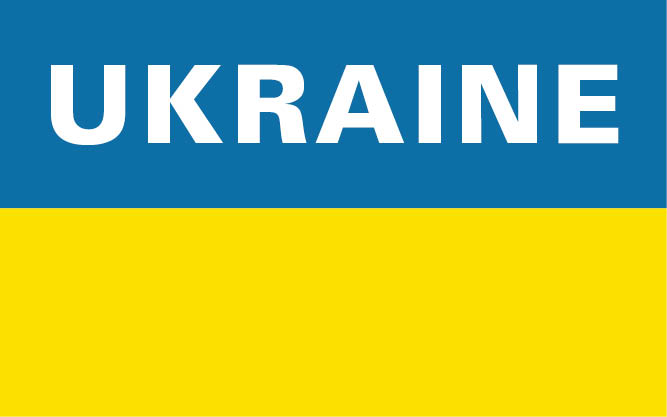This transcript has been lightly edited for clarity.
John Milewski: Welcome to the Need to Know podcast from the Wilson Center, a podcast for policymakers available to everyone. Always informative, nonpartizan and relevant. We go beyond the headlines to understand the trend lines in foreign policy.
Welcome back to another episode of Need to Know. I'm your host, John Milewski. Need to know is a podcast produced by the Woodrow Wilson International Center for scholars. The center is congressionally chartered, scholarship driven, and fiercely nonpartisan. Need to know is a podcast for policymakers available to everyone. Well, China has maintained relations with nearly every country in sub-Saharan Africa for decades.
Those ties grew in scope and diversity with the 2000 launch of the forum on China-Africa cooperation. Some, including members of the US Congress, say China's activities pose threats to U.S. foreign policy and security interests. With Secretary of Defense Lloyd Austin labeling China's role in Africa as destabilizing, the 2024 China-Africa Cooperation Forum was held earlier this month in Beijing, with 53 African nations in attendance to discuss China, Africa relations and implications for the US.
My guests are Oge Onubogu, director of the Wilson Center's Africa program, and Robert Daly, director of the Kissinger Institute on China and the United States. Welcome, OJ and Robert. Good to see you. Thanks for joining us. Oh, let me just start dig right into the concerns expressed by some members of Congress and the comments from Lloyd Austin. A lot of this is tied to what people have called either predatory lending or debt trap diplomacy, in which, you know, China's loans and its infrastructure contributions come with strings attached.
Let me ask you, okay, first, what are the countries that are most engaged with China and are benefiting most from Chinese investment?
Oge Onubogu: Thank you very much, John. And I do want to go back a little bit and just talk a talk about FOCAC itself. What the forum for China. Africa. What it is. So this, started in 2000, and it's coming up on its 24th year. And the forum that happened in September of this year. This is the ninth forum that has it has happened.
And so we've seen a level of consistency from 2000 until now. So FOCAC in many ways is a cornerstone of China Africa relations. And I think the point that you made, which is really important, is also the way China looks at the entire continent, where it engages with all 50, with 53 countries. I believe Eswatini is the only country that isn't, engaged, in these conversations, but it engages across the board with countries regarded in sub-Saharan African countries and North Africa.
And we basically said we saw sort of the participation of countries in the forum, this month, early this month, where, you know, even though there were concerns early on, before the forum on what participation was going to look like, because we've seen so many Plus One Summit happen over the past few, the past few years.
We saw the US Africa summit, we saw a summit in Italy. We saw the summit, in Korea. So there were concerns about, you know, who was going to show up. If we were going to see the same levels of participation that we had seen in previous summits, and all 53 countries were represented this year, at the summit.
So really, I think it's important to put that into perspective when we think about the relationship between China and the African continent. And I also think it's important for us. Going back to your question, when we say China, Africa, that Africa isn't a monolith. Within that continent there are different. There are bilateral relations. There are countries that will have different levels of relationships with China.
And even within those countries themselves, there are different regions in the countries that will also have different levels of cooperation or partnership. So it's very important that we keep that in mind from the very beginning when we think about the relationship, China's relationship, with the continent.
JM: You know, and just adding to what you said, okay, of those 53 countries, 51 sent a head of state or governments and the Africa Union Commission chair attended and the UN secretary general, Robert, I'm sure that, President XI had to be thrilled with that level of participation.
Robert Daly: And I'm sure this is a sort of a typical widespread diplomatic method of the Chinese government. Not only does it have a regional arrangement of this certain Africa, but it has CELAC, which is China, Latin America and the Caribbean, which operates in a similar way and which notably excludes the United States. So it's sort of an alternative to the Organization of American States.
They also have a plus one arrangement with the Central Asian states. And they also, like to work this way with ASEAN. So, this is a typical Chinese, method of diplomacy. Per Secretary Austin's comments. I think we need to be a little careful. America has gotten into the habit of describing almost anything that it wishes were otherwise as a security threat or challenge.
I'm not sure that that is justified in every case. China has been active in Africa for a very long time, really since the Bandung Conference in the early 50s. It has had at times complicated but fairly close relations with Africa. China has made tremendous use of educational diplomacy. It has for decades given free scholarships to a huge number of engineers, and doctors from Africa who would do all of their studying, in Chinese universities in the Chinese language.
When I lived in China, even in the 80s, the best Chinese speakers, bar none, were the Chinese students who'd been forced to ask. And these people for decades have gone back to Africa with Chinese degrees and have set up institutions with Chinese marks in addition to an educational piece. Of course, it's about, Belt and Road infrastructure lending in Africa, much of which, yes, is about extractive industry, which benefits China very clearly.
But it's not only about that. And so when we take comfort in saying, well, this is all debt trap diplomacy, that's often not the way that it's seen, in countries in Africa, in fact, the best work and the most detailed, data driven work on Chinese lending, which has shown that most of it, in fact, is not deliberate debt trap diplomacy has been done by American scholars.
There's a big problem with Chinese lending in Africa and with debt distress in African countries, and that has to be sorted out. But this American idea that China is planning from the outset to lend to countries that can't repay in order to take over assets. American scholars themselves have largely debunked this. This isn't to say that there's no problem.
This isn't to say that America doesn't face a challenge with China's activities in Africa, but to leap right to debt, trap diplomacy and a security challenge to the United States rather than to go country by country, is okay says, and to pay attention to African attitudes, which are diverse and shifting. And African agency, I think, is a mistake.
So I think we shouldn't start with this idea of what China does in Africa. It does to pull one over on us.
JM: Yeah, yeah. Okay, okay. About that. You know, this this thing that persists certainly my entire lifetime. We talk about Africa monolithically as it and we often do that with Latin America too. You know, it's an American thing where we we chunk big parts of the globe where there are these distinct countries from the perspective of individual countries. And I don't expect you to talk us through all 53 nations that attended.
But what can you tell us? Can you pick a country here or there where there are examples of really productive relations with China that are benefiting the country? And on the flip side, are there those who are concerned, even though I take exactly what you said, Robert, as gospel, I get it. This broad-brush stroke is not necessarily instructive, but there are concerns out there. Yes.
OG: I think when we look at a public perception surveys from the continent, especially those conducted by organizations like Afrobarometer, where they ask questions about, you know, African citizens perceptions about engagement from China, the US, Russia and other, actors. Increasingly, we see that the numbers are favorable towards China compared to the US. Even in the most recent, public perception surveys that were conducted.
So that's to say, you know, perception, and some of the things that citizens, African citizens want the most when it comes to infrastructure development, China has been really active in funding projects in this space since 2000, that they've been really active in this space. And I do get the point that you made about, you know, debt, in, in different countries.
And I think to some extent, we actually saw that theme or it was sort of tackled in the conversations around FOCAC, this this month, where even African countries themselves had conversations that were co-chaired with their Chinese counterparts. So we saw very sort of forward leaning, proactive discussions towards trying to address these, concerns. There have been raised, you know, the Chinese are now taking an angle of small but beautiful.
I think that's what they call it in terms of their funding of, of, of, of projects. So we see a lot of engagement in funding infrastructure projects. We see a lot of engagement also on the soft power side too, as well. And that's why coming out from FOCAC, when we see the big number, I tell folks, let's not always focus on the number or the pledges that have been made coming out from these meetings.
We must look at the relationships that have been built over time and coming out from FOCAC. We see that there are commitments that are made towards, education funding. You know, students from African countries to study in Chinese universities. Now, when you compare that sometimes from some perceptions, from Africans, where you have some African students that struggle to get visas to study in the US or other Western countries, even after they've been, accepted into universities, compared to China.
That in itself also feeds into you kind of see where the perception is coming from. You see their commitment, the, the Chinese saying, you know, they want to provide 10 million jobs over a certain period of time. You see the engagement in agriculture, some of the things that matter most to African citizens. So you see that there's been quite a bit in their sort of engagements on the soft power side.
So that has really raised sort of the, the, their, the perception among African citizens, many African citizens across the board. And I think just seeing the numbers that those that participated in FOCAC this year and the level of individuals that participated in this summit from the, from, from, from the continent, sort of response to answers. Your question about, you know, the perception coming from the continent where they see, the Chinese as, as, as a, as a partner.
And I think some of the messaging that we saw coming out from FOCAC, this year, China in many ways is trying to position itself as the leader in the global South. I'm not a big fan of using the global South, but they're really trying to position themselves as a leader. And I think we see, a lot of, African countries, seeing this as a partnership that want a partnership where there is a shared mutual benefit in, in the partnership.
I also think just in terms of there is some work to as well that needs to be done on the Africa side towards ensuring that ensuring that this if this partnership with China becomes one or remains one that is mutually beneficial, that African leaders themselves be there from individual countries, but also coming together as the African Union is able to come to the table with a common position, ensuring that China is able to respond to the needs of the continent, that China is able to respond to the needs, as the EU has laid it out in its agenda 2063, agenda 2063 for the EU.
Instead of a blueprint for development, where the where, where Africa sees itself by 2063. So, the more I'm a.
JM: More on I'm sorry about that. A bit more on some of those numbers. That that 51 heads of state and heads of government who attended that conference are much higher than those who are scheduled to speak at the UN General Assembly meetings that are taking place as we record this episode and more on numbers. Robert, president XI committed 51 billion to support 30 infrastructure projects.
But what he didn't offer was debt relief. And that's what some African nations were looking for. What can you tell us about that? And as it relates to China's intentions?
RD: Well, so first, not only in Africa but around the world, Chinese pledges don't amount to much, especially in these big meetings. Much is pledged. Those numbers are very unlikely to come to fruition. The amount that China has actually been putting in to China for new projects has gone down. China's economy, of course, is in distress.
And most of the new lending, that China has been making through Bri is actually for restructuring of debts. It's trying to keep projects afloat. So there's less and less money coming, in for new projects all the time now, when I've spoken about this problem with Chinese friends, they respond with the old joke about the two guys who were being chased by the tiger, and one stopped to put out sneakers.
And the one that doesn't says you can't outrun the tiger. And the fellow says, no, I can't, but I can outrun you. And so China's answer is, yes, we're doing less in China and in Africa. Yes, there have been problems. With repayment on some of these loans, but
China's claim that it will become a leader in the global South. They see themselves doing more. So, yes, the amount of money pledged, they're not going to get it. The amount going into real projects is going down. Some countries, Zambia in particular, is very deeply debt distressed and some projects that are directly or indirectly related to Chinese demand.
And I'm thinking about graphite, cobalt, bauxite mines, child labor in the Congo. These places are households. Russia is also involved in some of these areas, but we can't.
JM: Very short on time. Very short on time. But I want to, ask both of you for some reaction to two other areas before we close. We'll just run over a little bit. One is about the significance of China's decision to engage military leaders between, behind the coups in Mali and Sudan, which did not make the US happy.
What does this say about Chinese intentions? Even though the conference mostly was focused on economic cooperation. Is it China also ramping up its interest in political and security dimensions in these relationships?
OG: Well, I think going back to the points of where we see China basically framing itself, building itself as a leader, not only looking on the economic side, but looking at the, you know, there's technology, there's agriculture, there's security issues too, as well, and capacity building, because on the security side, it was basically exchange with, Chinese military officers and officers on the, on the continent.
So all of this, it sees itself as if it really wants to position itself as a leader. It needs to be well-rounded, not only focused on the not on on the economy, but technology, green energy, agriculture, security. And I think this is important, extremely important for us to note as we move forward and as we think about, our engagement with the continent and simply framing conversations within the context of great power competition helps no one at the end of the day, because China is positioning itself as a leader in that region.
A lot of African countries are seeing China as a as a partner to work with citizen perceptions. Perceptions, surveys conducted on the continent, showing that African citizens view engagement with China more favorable than they view with the U.S, even though in many instances US financial support in some areas on the continent are significantly higher than the Chinese.
So this in itself should be a question for us. If the US is supporting the US, financial support is higher in some areas than the Chinese. Why then do African citizens view Chinese relationships more favorable when compared to the US? So that's to show you that it's not just about the financial numbers. So that's why I say we shouldn't spend our time focusing on the pledges or the numbers that have been put out there.
After every summit. We should think about the work that is done in between. Right now, we already have a date set for the next forum for China-Africa cooperation. We already know who the next country is that is going to co-host to the Chinese. We don't know when the next US Africa Leaders’ Summit is. So there is a lot of planning that goes into the work that the Chinese do with the Africans.
That sort of shows them as being a stable partner, as it were. And I think this is perhaps what we should be sort of a takeaway from us. The thought from this, as in what could we be doing better to strengthen, US Africa relations.
JM: I hear you okay, U.S. got up its game. You're not saying that directly, but I was Robert is is China viewing this as direct competition with the United States?
RD: Yes or no? China's view is that it is doing what it is naturally doing as it becomes a great power again and translates its wealth into global influence. They then bump into us as the residents resident power. And there we have a competition. But they're not pursuing competition with us. In the first instance, they're doing what they want to do in Africa for their own reasons, but they're having some trouble with what they're adjusting on.
And okay, has touched on it's China has always prided itself on not interfering in the internal affairs of other countries and of making loans without political prejudice. As China becomes a real world power, what it's finding out is what we found out. Development is interference. You can't develop without picking winners and losers, without upholding resident powers, without doing some things that are going to change cultures and threaten tradition.
And so China is finding out that, yes, you have to interfere in internal affairs. You have to get involved and prove your original question. They did this first in Sudan during the civil war when Wang Yi went there. And so Africa, for China has been a major place that it learns to be a power along all dimensions. As okay, just said, but also a power that has interests and wants to defend them and that, yes, interferes in other countries.
And it does the things that China and other nations have accused us of doing.
JM: Well, I wish we had more time. I mean, you know, that sounds like one of those things that host just say routinely, I absolutely mean it. We've, you know, tip of the iceberg. I've learned a lot from both of you, and I'm sure our listeners have as well. But we could go on. And so we'll have to do this again sooner rather than later.
Thank you very much for today. And I just want to tell you, if you'd like to learn more from OJ and Robert and their respective programs, you can find more of their work at the Wilson Center website. There's a programs tab at the top of the page that will guide you to the Kissinger Institute or the Africa Program.
Now we'll return with another episode of Need to Know soon. Until then, for all of us at the center, I'm John Milewski. Thanks for your time and interest.

